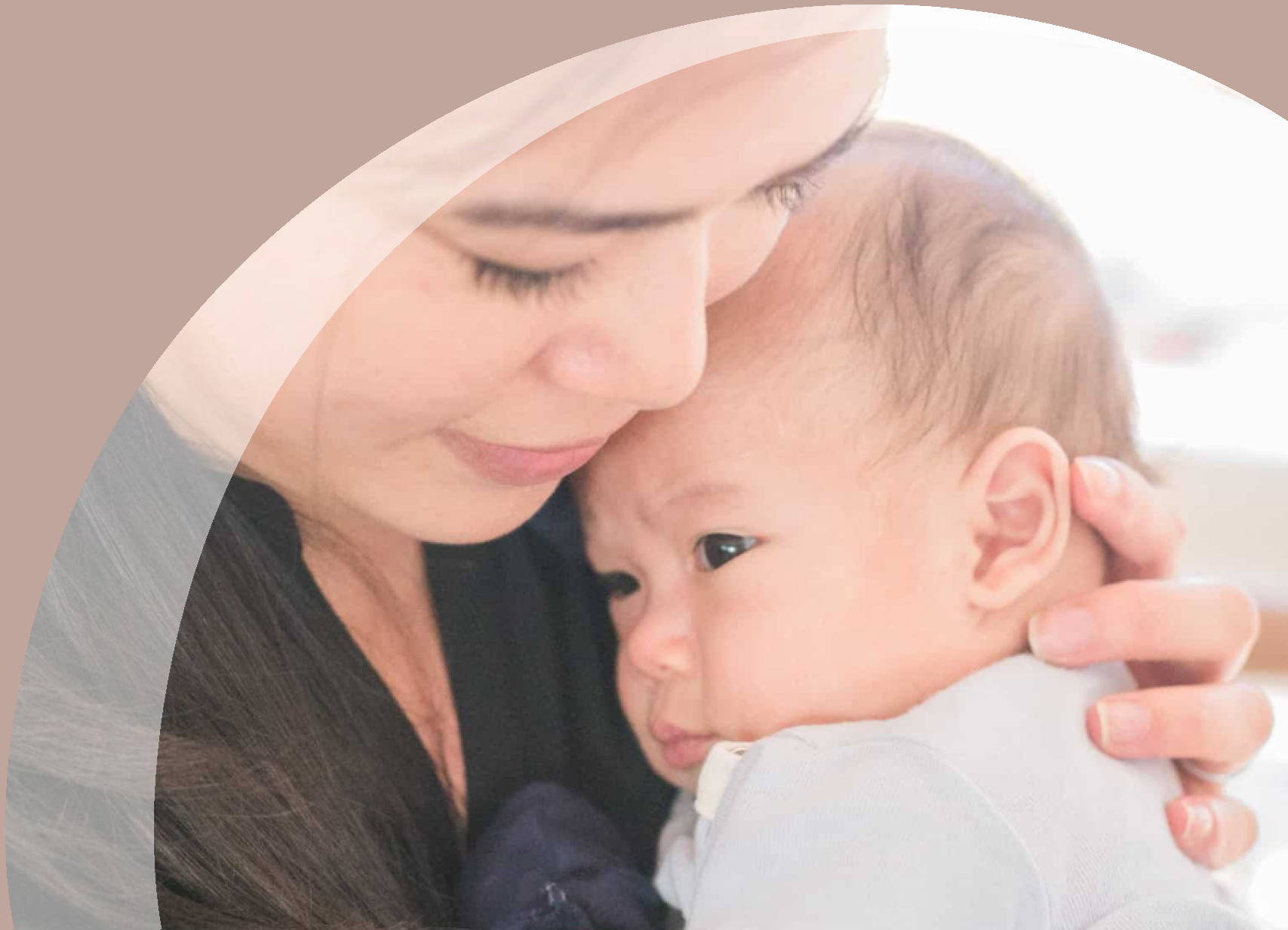WHEN IT’S MORE THAN THE “BABY BLUES”
Here’s a fun fact: there are just shy of 4 million babies born every year in the United States.
That means almost 4 million women become mothers or add to their families, annually.
A not-so-fun fact: of those 4 million women, as many as 1 in 5 will experience some type of perinatal mood and anxiety disorder. Furthermore, it is thought 7 in 10 women hide or downplay their symptoms.
Despite this, postpartum mental health is not discussed nearly enough.
The American College of Obstetricians and Gynecologists recommends in order to optimize the health of women and infants, postpartum care should become an ongoing process, rather than a single encounter, with services and support tailored to each woman’s individual needs—and we agree wholeheartedly. Keep reading more to discover information about Postpartum Mood Disorders.
The weeks following birth are a critical period for a woman and her infant, setting the stage for long-term health and well-being. During this time, a woman is adapting to multiple physical, social and psychological changes. She is recovering from childbirth, adjusting to changing hormones and learning to feed and care for her newborn.
You’ve probably heard reference to experiencing the “baby blues” during this time, and that feeling low is “completely normal”.
But is it? And how do you know when what you’re feeling is “more than the baby blues”? Let’s talk about that.

Generally speaking, the “baby blues” are considered “normal” during the first two weeks of your postpartum recovery. Those can manifest in many ways but are commonly seen in things such as: crying for what seems like no reason (there’s no chocolate in the fridge!) , irritability (ugh, you’re chewing too loud!), anxiety (please don’t touch my baby!), impatience (just let me do it, you always do it wrong! and sadness (I’ll never have alone time ever again!).
THE VAST MAJORITY OF NEW MOMS EXPERIENCE THESE BABY BLUES IN SOME FASHION BUT, WITH TIME, THE SYMPTOMS SHOULD START TO DISSIPATE, AND YOU SHOULD SLOWLY EXIT THE THICK FOG THAT ONCE ENGULFED YOUR DAILY LIFE.
Sometimes, however, those symptoms don’t go away, and they can get worse.
If your occasional crying and sadness turns into severe mood swings.
If you find yourself withdrawing from loved ones and having extreme feelings of shame or guilt.
If you find yourself living in constant fear or worry
If you’re have trouble focusing or have physical symptoms like dizziness or nausea
These may be indications of something a little more serious.
While we all have moments of inadequacy as new moms; these things shouldn’t plague you and you shouldn’t feel like you “just have to deal with it” because it’s standard new mom territory.
Symptoms of both postpartum depression and anxiety sit on a spectrum and manifest differently in every woman, so it’s important to speak with your healthcare provider if you do find yourself experiencing any of these symptoms past that initial two-week mark, especially if you’re having thoughts of harming yourself or your baby.
Your mental health should be at the top of your priority list, no matter where in life you are, but especially in your postpartum recovery.
If you are one of the women suffering, remember that you are not alone. You don’t have to accept this as your new normal or battle through this by yourself. It may feel like you’re on an island sometimes, but the reality is, you are not. The people around you love you and want to help you be your best self, so if that means seeking out counseling or medication to get yourself there, that is absolutely OK, and you should not think of yourself as any less because of it.
We need to do our part in shedding light on these things that impact so many of us. Postpartum mood and anxiety disorders are far more common than you might realise. It’s increasingly important we all play out part to help identify symptoms not only in ourselves, but in the mamas we surround ourselves with.
We hope that you found this post about Postpartum Mood Disorders helpful. If you or someone you know is in need of support, you can find plenty of resources to help you right here.




